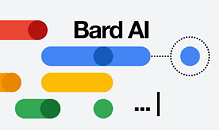Google made a small but important change to their privacy policy over the weekend that effectively lays claim to anything you post publicly online for use to train their AI models. The original wording of the section of their privacy policy claimed that public data would be used for business purposes, research, and for improving Google Translate services. Now however the section has been updated to read the following:
Further down in the policy text Google has another section which exemplifies the areas of "publicly available" information they seek to scrape,

The new change has already gone into effect as of July 1st, 2023. Given the scope and longevity of Google accounts (think how long some people have had Gmail and YouTube accounts) this change now formally includes an incredibly vast amount of public interaction data stretched over decades. What is still uncertain is whether those individuals that have committed to "de-Googling" their online lives could be caught up in the dragnet of Google's data scraping regardless of whether they've agreed to this policy change, or if simply having any contact with Google over the years is enough. Large-scale public scraping has already been happening regardless of individual consent with other large language training models, such as OpenAI's ChatGPT. Ideally though this change affects only those whom have active accounts with various Google services. One important point to be made is that Google does not mention anything about using private data, and such data shared with Google is apparently safe from being ingested into the AI machine. For now.
View at TechPowerUp Main Site | Source
Google uses information to improve our services and to develop new products, features and technologies that benefit our users and the public. For example, we use publicly available information to help train Google's AI models and build products and features like Google Translate, Bard, and Cloud AI capabilities.
Further down in the policy text Google has another section which exemplifies the areas of "publicly available" information they seek to scrape,
For example, we may collect information that's publicly available online or from other public sources to help train Google's AI models and build products and features like Google Translate, Bard, and Cloud AI capabilities. Or, if your business's information appears on a website, we may index and display it on Google services.

The new change has already gone into effect as of July 1st, 2023. Given the scope and longevity of Google accounts (think how long some people have had Gmail and YouTube accounts) this change now formally includes an incredibly vast amount of public interaction data stretched over decades. What is still uncertain is whether those individuals that have committed to "de-Googling" their online lives could be caught up in the dragnet of Google's data scraping regardless of whether they've agreed to this policy change, or if simply having any contact with Google over the years is enough. Large-scale public scraping has already been happening regardless of individual consent with other large language training models, such as OpenAI's ChatGPT. Ideally though this change affects only those whom have active accounts with various Google services. One important point to be made is that Google does not mention anything about using private data, and such data shared with Google is apparently safe from being ingested into the AI machine. For now.
View at TechPowerUp Main Site | Source






